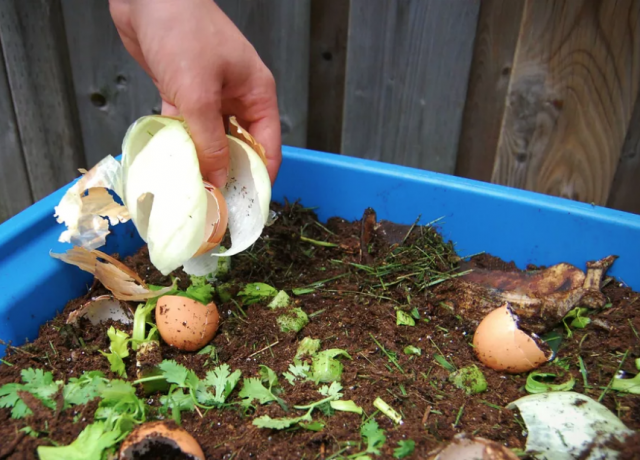Make 2021 a Conservation New Year
Holiday Food Composting
 Composting is simply the process of organic material decomposition.
Composting is simply the process of organic material decomposition.
Every holiday dinner we seem to have an abundance of leftovers, often these food leftovers are thrown out or left to spoil. According to Cornell University, there are nearly 38 million tons of wasted food in the United States. Composting is simply the process of organic material decomposition. If we composted many of the things we throw away, such as kitchen scraps, grass clippings, leaves, and other landscape debris, we could divert 20 to 30 percent of the trash currently going into landfills.
By composting these materials, we can reduce the amount of waste we generate and produce organic matter and nutrients for our garden, landscape, and yards. Every garden benefits from the addition of compost because it supplies many of the nutrients plants need. Composting also improves the soil’s physical characteristics, increases soil capacity to hold water and nutrients, and increases soil aeration.
In general, you should have about four times as many browns as greens. If your goal is simply to avoid sending organic matter to the landfill and the compost is an afterthought, then you don’t need to worry about it too much. If your bin gets wet and smelly, add more browns and cut back on the greens for a while, then give it a turn. If the contents of your bin aren’t breaking down, add some greens, turn it, and it should start turning into compost again. To turn the compost easily, give the bin a shake every one to three days. This blends in air and distributes moisture, creating the perfect environment for the materials to decompose.
Compost: fruits, vegetables, grains, bread, unbleached paper napkins, coffee filters, eggshells, meats, and newspapers can be composted. Don’t add meat, bones, dairy, whole eggs (shells are okay), grease, or other animal-based scraps. These can develop pathogens as they decompose in the compost bin, causing odors that attract rodents and other pests. Never add solid waste from pets.
Every little thing YOU do really makes a difference, these small changes cumulatively over time can have a significant benefit to our environment.


